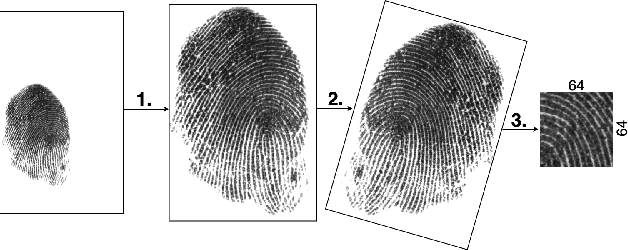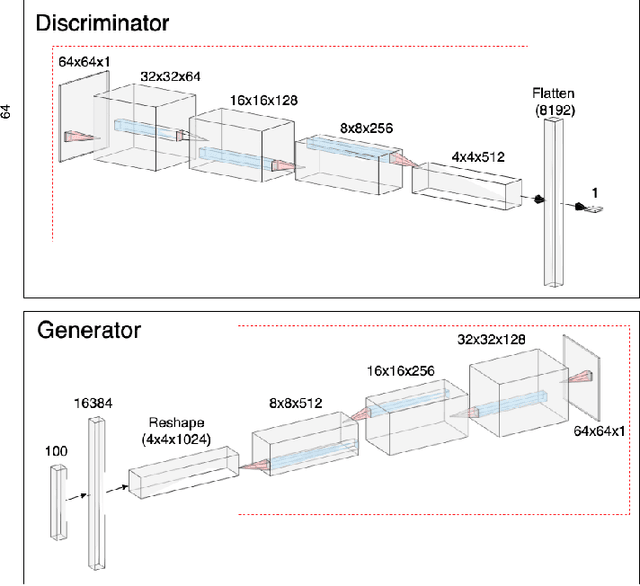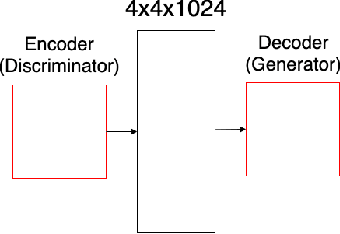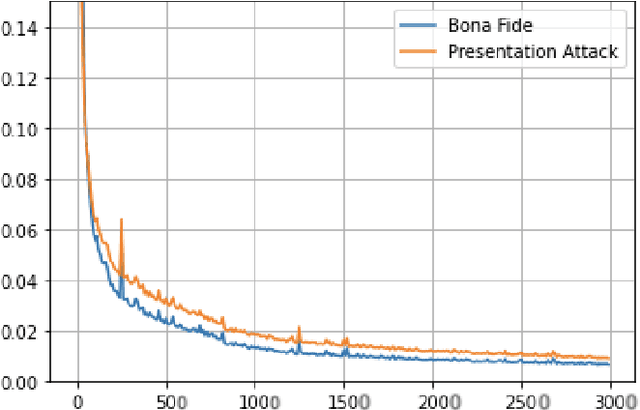GAN pretraining for deep convolutional autoencoders applied to Software-based Fingerprint Presentation Attack Detection
Paper and Code
May 21, 2021



The need for reliable systems to determine fingerprint presentation attacks grows with the rising use of the fingerprint for authentication. This work presents a new approach to single-class classification for software-based fingerprint presentation attach detection. The described method utilizes a Wasserstein GAN to apply transfer learning to a deep convolutional autoencoder. By doing so, the autoencoder could be pretrained and finetuned on the LivDet2021 Dermalog sensor dataset with only 1122 bona fide training samples. Without making use of any presentation attack samples, the model could archive an average classification error rate of 16.79%. The Wasserstein GAN implemented to pretrain the autoencoders weights can further be used to generate realistic-looking artificial fingerprint patches. Extensive testing of different autoencoder architectures and hyperparameters led to coarse architectural guidelines as well as multiple implementations which can be utilized for future work.
 Add to Chrome
Add to Chrome Add to Firefox
Add to Firefox Add to Edge
Add to Edge